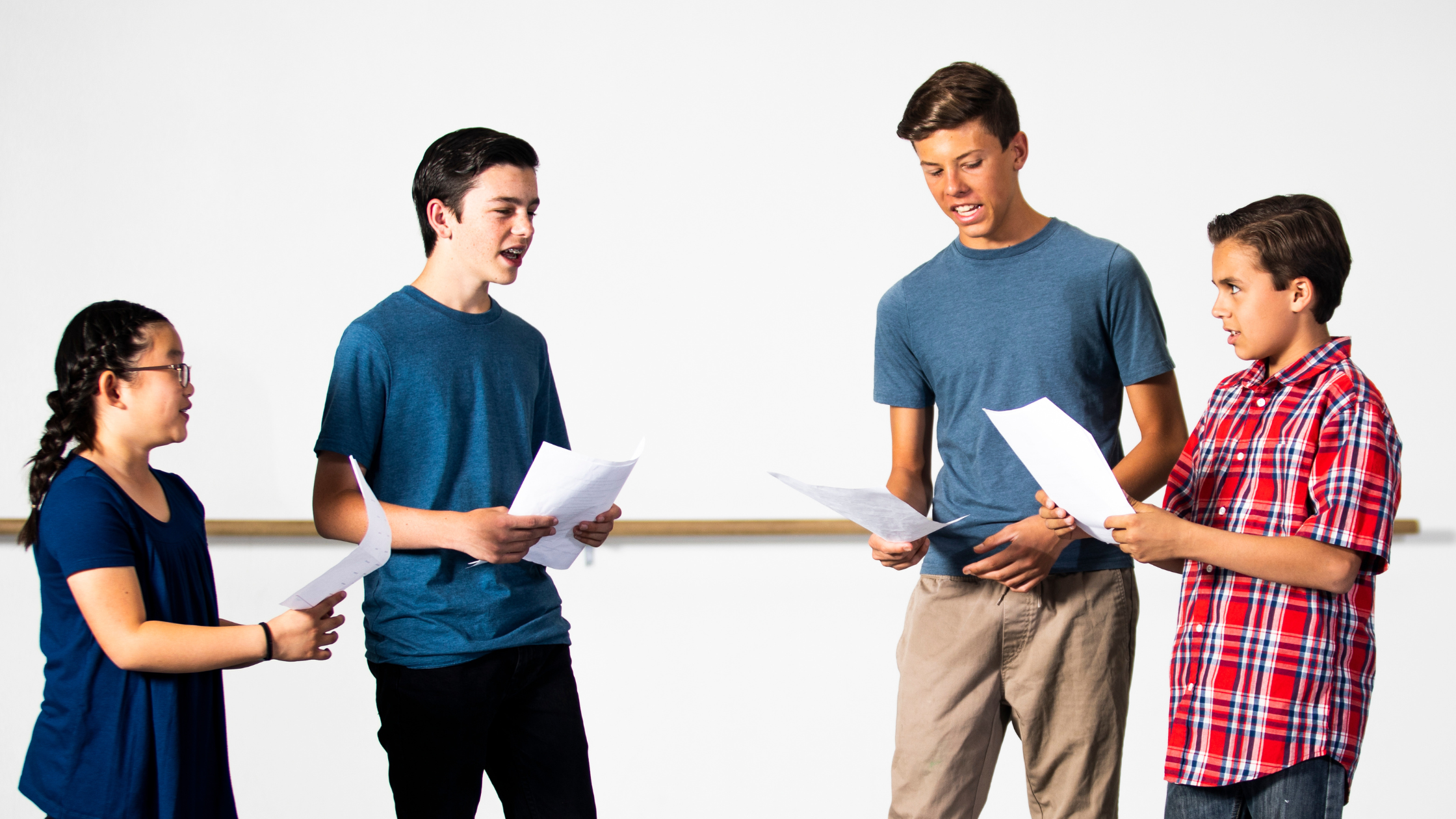

“I regard the theatre as the greatest of all art forms, the most immediate way in which a human being can share with another the sense of what it is to be a human being”.
-Oscar Wilde
Special needs schools are schools which cater to special needs of students who may require special modifications and accommodations to meet their academic and extracurricular goals. Students may have challenges like specific learning difficulties, autism, ADHD , vision impairment and may also have gifted students. Special needs schools have a niche to channelize their student’s special abilities and help them reach their specific goals. Accommodations may include giving a child with dyslexia (difficulty with reading) a written or audio script in advance, finding and permitting the use of AT (Assistive Technology) for students with speech or language problems etc.
Drama is an effective tool that can be used to enhance the teaching-learning process in the academic curriculum. A good drama program that is set up in school can be very engaging and can help your child not only develop skills in drama but will also help them in academic areas as well. Integrating drama by interlinking in with core subjects like English, Science, History, Geography and even Math can help students to remember key concepts effectively. Drama includes a range of activities like reading a specific script, acting, mime, improvisation, tableaux, plays, puppet shows etc. Drama includes both verbal and non-verbal communication. It includes the use of visual, verbal and kinaesthetic modes. Performing a certain role on stage requires a student to get into character. While performing a certain role, the student also learns to focus on other aspects which includes verbal communication and body language. Humour as a theme in drama can be effectively used to make learning more fun and interactive. Students are able to retain more if they laugh, have fun and enjoy the learning process. A student may find it novel to wear innovative costumes and work in a setting that is beyond pen and paper. Drama presents an opportunity to express multiple perspectives, use of out of the box thinking and engage in problem solving. An additional drama program set up in school can further help students to discover their creative side on a regular basis. The teacher in a special needs school will be able to understand your child’s specific requirements for a performance and also make the necessary accommodations for your child. On the other hand, subject teachers may also be given professional training at schools to further develop their skill set so that they can in turn cater to the varying needs of their students.
Drama may be conducted in a space outside the classroom. It may involve a change of structure, the use of props and costumes, frequent rehearsals etc. Providing a structure before beginning the session and letting the student know what are the expectations of the session will help the student transition smoothly and avoid behaviour related challenges. Prior to the execution of the act, the teacher may involve students in group work, reflective exercises and may provide feedback. This helps the students prepare well and participate with effective engagement. Sometimes, students with autism may find interaction with peers challenging. Drama can be an effective tool that may help the students take a step forward towards developing healthy relationships. Some students find it challenging to express their emotions. Through body language, tone of voice, pitch, eye contact, a teacher may be able to gather information about their students' emotional needs and mental health.
Drama helps students to enhance their communication skills and also helps in language building. It helps them develop self-confidence . It encourages students to think, act and respond creatively. Drama can help build the child’s confidence by creating a safe environment to express themselves. It also encourages students to work together, develop social skills and create lasting bonds and friendships. Drama can help the student improve memory skills which will further help them in academics. A student may also learn essential skills like turn taking, making eye contact, attention , concentration, listening skills, being tolerant of those around and responding appropriately. A loud applause from the audience can highly boost their confidence. On the other hand, there may be times when a student may forget their dialogue on stage or may make an error which can then impact the child’s self-esteem. In such a case, a teacher in a special needs school will certainly have the sensitivity to help the child overcome their fear of judgment and also sensitize the other students that making mistakes is just a part of learning.
Drama truly brings out the imagination within students. The Aditya Birla Integrated school located in Mumbai has a drama class as part of the time table and is also integrated into the academic lesson plans. The students also get an opportunity to perform during school assemblies, school events and the much awaited annual day. Some of the non-verbal students shine out during such events when given an opportunity to express themselves through drama. The overall mission of the school is to create well balanced students and to inspire potential. Drama is used as one of the strategies that help their students to reach this goal. We need to continue our efforts to help our students find their passion and within it find an opportunity to develop their skills to reach their full potential. The goal of education is ultimately to help students engage in lifelong learning for growth of self and to create a positive impact in society.
“Acting is magical. Change your outlook and your attitude, and you can be anyone.”
-Rochelle Amelia Fernandes